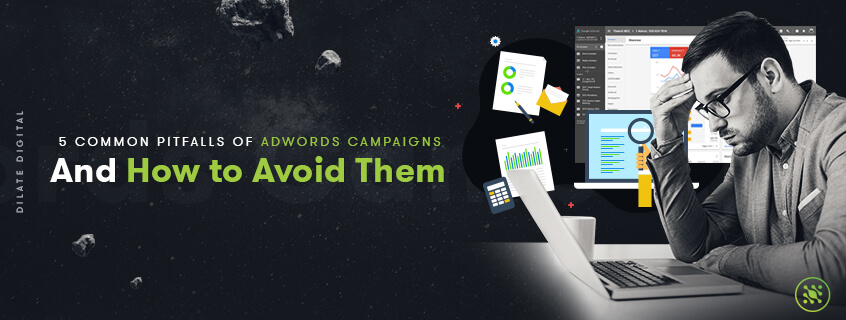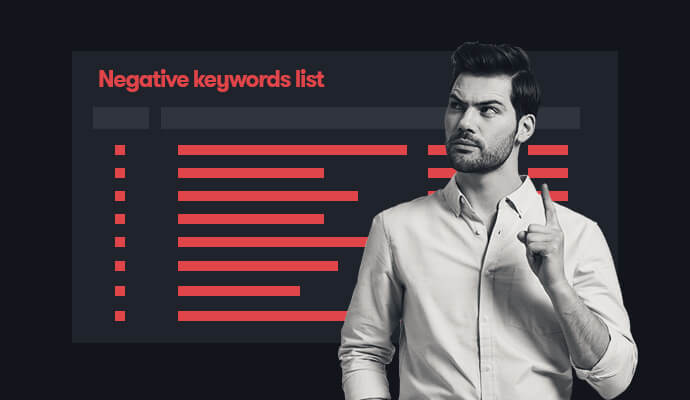

As a PPC Agency that specialises in Adwords for Perth businesses, we’ve seen EVERYTHING that an AdWords campaign can throw at you. We’ve seen the highs, the lows, and the in-betweens. Luckily for us, we have the good fortune of seeing far more highs than lows these days and that’s because (as most great philosophers of our time will tell you) you learn from your lows far quicker than you learn from your highs.
So, if you’ve decided to ignore the countless pleas from marketing specialists, like ourselves, that insist on letting us look after your Adwords campaign and you’ve instead opted to handle it on your own, buckle up for some hard-learned lessons. Since we’re nice guys and we genuinely believe in helping ALL businesses grow, we wanted to arm you with a few useful tips to help you kick your campaign off on the right foot.
Seriously though, AdWords can and does make businesses a lot of money when executed well. You might think just because you’ve allocated a set budget to your campaign that nothing too bad can happen and generally speaking, you’re right. No fatal epidemics will spread, the world will continue rotating, no one will die - you’ll just lose money. But wouldn’t it be better to optimise your campaign so that you make more money from your budget rather than lose it? Yeah, we thought so too. So without further ado, here are five of the most common AdWords pitfalls and our top tips to help you avoid your budget being eaten in the first week without any returns.

Poorly considered or vague keywords are one of the easiest and quickest ways to bleed your budget dry. The thing is, for those that aren’t experienced in AdWords, you’re far more susceptible to using vague or poorly considered keywords.
What is a poorly considered or vague keyword? It’s a keyword that hasn’t been researched well enough to determine the search intent behind it. It’s a keyword that you’ve just assumed is right for your business because it aligns with your business (somewhat). It’s a keyword where the match type and the cost per click have not been considered whatsoever. It’s a keyword that’s common, generic and highly likely to be in high demand from hundreds of other businesses that also haven’t done their due diligence.
Poorly considered keywords will attract thousands of people to your ad and a great portion of those will click through. The issue is, they’re not the right people for your ad. Because your keywords are so generic, many of the people that click through on your ad won't actually be looking for your service or product. More commonly, they’ll probably be confused how their search landed them on your page and they’ll click right off just as quickly as they clicked through. If your goal is to get low-quality clicks for an exponential amount of money, by all means, continue ploughing into your budget with vague keywords. But if not, perhaps consult a PPC Agency to find out more about the best practice tactics for your campaigns.

It may sound bad, but in reality, your negative keyword list is your friend. Give it attention, and give it often. If you’re an AdWords regular, you would probably know about negative keywords lists, but if not then keep reading. This baby will save you a pretty penny.
An underutilised negative keywords list is high up on the reason your budget is being blown without conversions. To briefly summarise, the negative keyword list is a section in your AdWords campaign where you insert all the keywords that you don’t want your ad to show up for. Usually these keywords are adjectives or describing words that can easily be associated with your service or product, but definitely not with your business.
In Adwords, you don’t pay for the keywords that trigger your ad exactly. What you’re paying for is all the related search terms to that keyword based on match type. So, say you’re a premium marketing agency and one of your keywords is “Adwords Perth”. You monitor your “recent searches” which shows you all the exact searched your ad has appeared for and you’ve seen that you’re showing up for “cheap Adwords service in Perth”. You know you’re premium, you know the people who click through on that ad can’t afford the amazing service you’ll provide them, and you don’t want to waste your budget on searches with a high CPC that is giving people the wrong impression of who you are. This is when the negative keywords list comes into play.
Your negative keyword list should be updated regularly, especially if your ad spend and budget is larger than normal. In this list, you would add the term “cheap”, you could do this at campaign or account level. But since you know none of your services are cheap, you could take the initiative to go ahead and make this an account level negative keyword - this will stop all of your campaigns ever showing up for a search where the term “cheap” is mentioned, and now you’ve successfully refined your target audience and are able to attract the customer who not only want you but can also afford you.

Wouldn’t it be nice to be in the number one spot for the keyword “Adwords”? Wouldn’t it be nice to be the cream of the crop and gain massive visibility every single day? The answer is yes, but the question is really whether it’s possible. I guess, technically, the answer to that is also yes, but for most of us non-fortune-500 companies it is but a distant dream and definitely a lost cause if you even attempt to bid on these popular terms. Why is it a distant dream? Let me tell you. The cost for a single click more often than not will cost you more than a drink or two at happy hour. The minimum going rate per click for these popular search terms starts at $10, but depending on the term this can seriously go up into the $100’s. But theoretically, let’s pretend you won the AdWords lottery and managed to scoop up a premium keyword for $10 per click. You know the average conversion rate is about 5% (and yes, that’s on the higher end of the scale for most businesses, unfortunately). You’re going to need 20 people to click on your ad before you even make a conversion on your website or landing page. That’s $200 per conversion. That conversion better have a high lifetime value otherwise you’re going to be in the red very soon.
Secondly, unless you have a massive budget, amazing brand awareness, and are a god at closing deals, it’s not really worth it bidding on these popular keywords. This will only lose you money - this goes back to the vague keyword issue - it’s too broad and you’re not well known enough for people to know what you’re about. Apple doesn’t have to worry about that, Nike doesn’t, McDonalds Doesnt. But you, my friend? You do.
Lastly, it’s simply not smart bidding, you're paying more to compete in an over-saturated market against your powerhouse competitors that literally have hundreds of thousands of dollars to spend on their marketing budget. You’re a little fish in a big pond and there are whales and sharks out there. Trying to compete with them will give you way less visibility as opposed to using long tail keywords that are specific to your location, service, product, and audience. Start small, grow from there. Don’t try to cut corners.

What are we talking about when we say that your budget is running dry because your campaign is lacking specification? We’re talking about your negligence of the finer details. Details you didn’t even know existed within your AdWords Campaign. Details that you’ve always had control over, but never knew how to optimise.
If you want to start saving money and paying less for more conversion then get serious about specifications. You haven’t set a limit for your cost per click? Great, have fun overspending. Haven’t excluded the age, gender, location and interests of all the searchers that your service isn’t catered to? Great, have fun losing money. Haven’t considered the overall budget you’re able to spend each much, your close rate, your conversion goals and the right keywords for your specific campaign? Haven’t been specific enough for each individual campaign? Haven’t got specific on your copy content? All of these things are signs of you not being specific enough. Therefore, this lack of attention to detail, to the specific intention and limits of each campaign will easily blow your budget and successfully deliver you a return of zero results.
Go back over your campaign, look through your demographics, look through your overall budget, your keyword bidding, your copy, your site links, your extensions, your GDNs. Don’t be wasteful with your budget, be smart.

It’s not uncommon to get excited by all the campaign possibilities when you first start experimenting with AdWords. The ability to narrow down and create seemingly endless amounts of campaigns for every micro audience and possible customer touch point is equally amazing, and creepy.
But if you’re not careful, the same thing that makes AdWords awesome, can also cost you $1000 of dollars. It’s called spreading your budget too thin, and like so many before you, it’s also to fall victim to it.
Because although it's awesome, it’s also overwhelming. You begin to get FOMO if you’re not targeting all the right keywords and creating campaigns for all your separate customer avatars. But just as business experts advise you to niche down in your business because “when your business serves everyone, it really serves no one”, the same rule applies for AdWords in a sense.
You simply can’t set up a dozen different campaigns, with a dozen different ad groups and ads in each and expect returns unless you have a very large budget to support each individual ad. So although it’s tempting to do it all at once, niche down. Determine your top earning product or service and focus on creating your best campaign for that. Or, if you already have a bunch of campaigns set up and you’re noticing that you’re only getting a few conversions that are all coming from one or two ad groups - pause all the others and apply your budget and energy into those ad groups. They’re obviously the strongest terms for your business. And you know what they say? If ain’t broke don’t fix it. We never take “their” advice whoever they are, but in this instance, we think that you definitely should!
If you’ve just finished reading this and realised your DIY AdWords Campaigns are a shambles, don’t stress, we can help - it’s kinda what we do. Give us a call today and let’s explore what we can do to tidy your digital marketing strategy and AdWords campaign up. Speak soon!
what our clients are saying
create business. better everyday.
Let's Talklearn from the best minds in the business
Bodie provides some insight into Dilate's internal operations. How we approach what we do, and how we strive to be Better Everyday.





